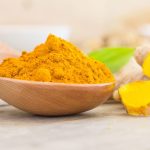In the ongoing search for effective remedies for inflammation and joint pain, two contenders have come to the forefront: turmeric, a golden-hued spice with ancient roots, and ibuprofen, a staple in modern pharmaceuticals. While both have their advocates, the question persists: which is better for managing arthritis and other inflammatory conditions?
Turmeric, specifically its active ingredient, curcumin, has gained significant attention for its anti-inflammatory and antioxidant properties. On the other hand, ibuprofen, a nonsteroidal anti-inflammatory drug (NSAID), has been a go-to for quick relief from pain and inflammation. This article delves into the benefits, risks, and scientific evidence behind turmeric and ibuprofen, providing a comprehensive analysis to help you make an informed decision.
The Rise of Turmeric and Curcumin
Turmeric has been a staple in Southeast Asian cuisine for over 4,000 years, and its use in traditional medicine dates back just as far. The active compound in turmeric, curcumin, is responsible for its anti-inflammatory and antioxidant effects. Curcumin blocks specific molecules that affect inflammation, reducing pain and swelling in conditions such as arthritis.
However, it's important to note that turmeric contains only about 2 to 6% curcumin. Adding turmeric to your diet may not provide the therapeutic effects you seek. According to Dr. Randy Horowitz, medical director of the University of Arizona Center for Integrative Medicine, “Turmeric only contains about 2 to 6% curcumin, so you’re not getting much [of the anti-inflammatory effect]” (source: Arthritis Foundation).
Moreover, the popularity of turmeric has led to a rise in unscrupulous manufacturing practices. Some products contain synthetic turmeric or toxic additives like lead chromate, which can be harmful. Therefore, choosing high-quality supplements that provide standardized curcumin extracts is crucial.
The Science Supporting Curcumin
Numerous studies have explored the efficacy of curcumin in managing arthritis symptoms. For instance, a study published in the Journal of Alternative and Complementary Medicine found that participants taking 1,500 mg of Curcuma domestica extracts (a source of curcumin) experienced similar improvements in pain and function as those taking 1,200 mg of ibuprofen daily. This study concluded that Curcuma domestica extracts are non-inferior to ibuprofen for treating knee osteoarthritis (NCBI).
Another notable study published in the Alternative Medicine Review examined a curcumin-phosphatidylcholine complex's long-term safety and efficacy in patients with osteoarthritis. The results showed significant improvements in pain and mobility without the adverse effects commonly associated with NSAIDs (NCBI).
The Case for Ibuprofen
Ibuprofen, commonly known by brand names such as Advil and Motrin, is a widely used NSAID that provides quick and effective relief from pain and inflammation. It works by inhibiting the production of prostaglandins, hormones that trigger inflammation and pain in the body.
Despite its efficacy, ibuprofen comes with a range of potential side effects. Dr. Jason Barker, a naturopathic doctor, highlights several serious risks associated with frequent ibuprofen use, including gastrointestinal (GI) bleeding, kidney and liver damage, and an increased risk of heart attack and stroke (LinkedIn). Even small doses can cause GI bleeding, making it essential to use ibuprofen cautiously.
Moreover, ibuprofen can impair cartilage repair, exacerbating joint issues over time. This is particularly concerning for individuals with osteoarthritis, where maintaining cartilage health is critical.
Comparing the Efficacy of Turmeric and Ibuprofen
While turmeric (curcumin) and ibuprofen have been shown to reduce inflammation and pain, they do so through different mechanisms. The choice between the two often depends on individual needs and the specific context of their use.
Speed of Relief
Ibuprofen is known for its rapid action, providing relief within hours of ingestion. This makes it an excellent option for acute pain and inflammation, such as headaches or muscle strains. Conversely, curcumin requires consistent use over several weeks to build up in the system and exert its effects. Therefore, it may not be suitable for immediate pain relief.
Safety Profile
Regarding safety, curcumin generally has a better profile, especially for long-term use. Studies have shown that high doses of curcumin can be consumed without severe adverse effects. In contrast, the long-term use of ibuprofen is associated with significant risks, including GI issues and cardiovascular problems.
A study published in the Journal of Clinical Rheumatology found that curcumin was as effective as ibuprofen in reducing knee pain without the latter's harmful side effects. Participants in the curcumin group reported fewer gastrointestinal issues and overall higher satisfaction with their treatment (NCBI).
Practical Considerations for Use
If you are considering using turmeric or curcumin for inflammation and pain management, choosing high-quality supplements is essential. Look for products that contain standardized curcumin extracts and have been tested for purity and potency. Additionally, curcumin's bioavailability is relatively low, often combined with piperine (black pepper extract) to enhance absorption.
For ibuprofen, following dosing guidelines and using the lowest effective dose for the shortest duration possible is crucial. If you experience any adverse effects, consult your healthcare provider immediately.
Conclusion: Making an Informed Choice
Both turmeric (curcumin) and ibuprofen have their places in managing inflammation and pain, but they serve different purposes and come with distinct profiles. Curcumin stands out for its safety and long-term benefits, especially for chronic arthritis. On the other hand, ibuprofen offers rapid relief for acute pain and inflammation but should be used with caution due to its potential side effects.
Ultimately, the best approach may involve lifestyle changes, dietary adjustments, and supplementation to manage inflammation effectively. Always consult a healthcare professional before starting any new treatment regimen to ensure it aligns with your needs and health status. For more information on the benefits and risks of turmeric and ibuprofen, you can visit the Arthritis Foundation and NCBI.










